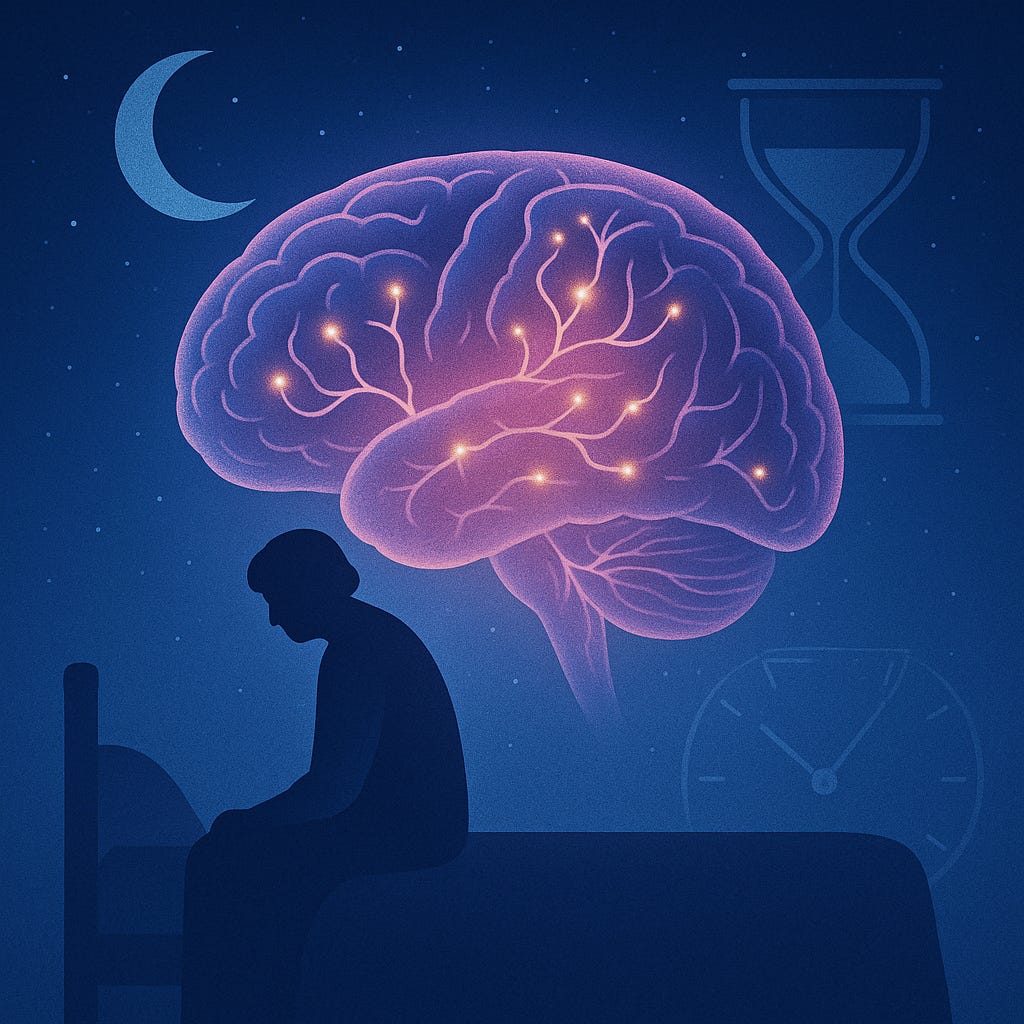Insomnia Raises Dementia Risk in Older Adults
New research links chronic insomnia to faster brain aging and cognitive decline.
A Mayo Clinic study following over 2,700 cognitively healthy older adults found that chronic insomnia increased the risk of mild cognitive impairment or dementia by 40% and was tied to accelerated brain aging, equivalent to 3.5 additional years.
Study Details
Researchers analyzed data from the Mayo Clinic Study of Aging, including 2,750 older adults with …
Keep reading with a 7-day free trial
Subscribe to Just Healthcare to keep reading this post and get 7 days of free access to the full post archives.


